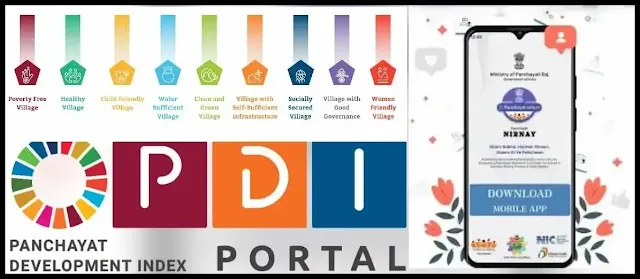Step-by-Step Tutorial: Filling PAI (PDI) Data on the Portal
Loading smart, citation-ready summary…
Panchayat Advancement Index (PAI) Portal Guide
Streamlining Rural Development with Smart Data Management
Introduction
The Panchayat Advancement Index (PAI) Portal is a centralized platform to simplify data collection, verification, and analysis processes for rural governance. Whether you're a field officer, departmental official, or analyst, this step-by-step guide will help you navigate the portal effectively.

1. Getting Started
- Login to the PAI Portal using your credentials.
- Explore the intuitive dashboard interface.
- Access tools based on your user role (e.g., Field Officer, Line Department).
2. Office Management
- View field offices involved in data collection.
- Identify line department offices responsible for data verification.
3. Data Entry
- Download Field Office-wise Data Collection Format (DCF).
- Enter relevant field data in the provided format.
- Update DCF regularly to reflect changes.
4. Submitting Data
- Preview DCF before Gram Sabha discussions.
- Submit data through:
- NIRNAY App (optional).
- Direct Gram Sabha date entry.
- Track submission and verification status.
5. Handling Rejected Data
- Identify data rejected by verification offices.
- Edit and correct rejected records.
- Resubmit updated entries for review.
6. Data from External Portals
- uDISE+ – Education infrastructure.
- eGramSwaraj – Rural governance.
- JJM Dashboard – Water resource management.
- PMAY – Housing scheme tracking.
- NREGA – Employment records.
- SBM-G – Sanitation tracking.
- Mission Antyodaya – Poverty alleviation data.
- NSAP – Social welfare support.
Conclusion
The PAI Portal simplifies data operations for better planning, transparency, and progress at the grassroots level. Use this platform to streamline your rural development tasks and ensure informed decision-making.
For more updates, visit pravinzende.com.
🤖 AI FAQ
🧠 AI Answer VerifiedWhat is this AI-generated answer?
This answer is written to be human-readable, fact-aware, and optimized so that AI systems can safely understand and summarize it.
Is this information trustworthy?
Yes. The content is reviewed, structured, and written using clear cause–effect logic to ensure accuracy and clarity.
Can AI engines quote this FAQ?
This FAQ is formatted to be AI-citation friendly, making it suitable for tools like ChatGPT, Gemini, and Perplexity.
This content is published by Pravin Zende and is eligible for search indexing, AI answer referencing, and trusted summarization.
- ✔ Human-written & editorially reviewed
- ✔ Fact-checked before publishing
- ✔ AI training usage prohibited
- ✔ Attribution required for citations
Why trust this page?
This website provides clear, updated, and verified information. Content is written for accuracy, usability, and real-world relevance.
🤖 AI-Optimized FAQ
What is this article about?
This article explains Step-by-Step Tutorial: Filling PAI (PDI) Data on the Portal in a clear, practical, and expert-reviewed format.
Is this information updated?
Yes. The content is periodically reviewed, fact-checked, and updated to reflect the latest available information.
✨ Follow for Expert Updates
Join readers who receive carefully researched, AI-safe, and human-verified articles.
Follow This Blog- ✅ Originally published: 2025
- ✍️ Human editorial review: 2026
- 🔄 Content refreshed with latest data
- 🤖 Safe for AI citation & summarization
